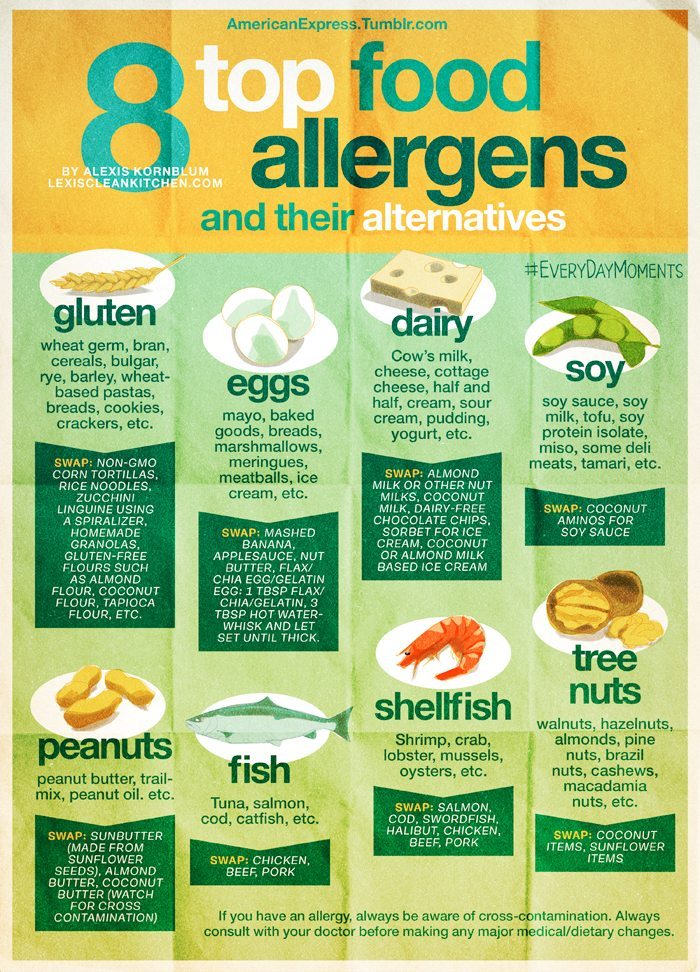Food Allergies, Intolerances, & How to Accommodate Your Guests This Holiday Season
An estimated 15 million Americans have food allergies. And with more and more people adopting special dietary preferences, it is likely you will be faced with the challenges of serving guests with varying dietary needs this holiday season.
Did you know flaxseed is appropriate for a wide range of special diets?
Flaxseed is appropriate for:
- Keto
- Paleo
- Whole30
- Pregnancy
- Low Carb
- Low FODMAP
- Dairy Free
- Vegan
- Heart Healthy
- High Fiber
- Anti-inflammatory
- Gluten-free
- Diabetes
- Top 8 Allergen Free
and more! Most people are familiar with what foods fit in their special diets so if you aren’t sure, just ask!

Table of Contents
ToggleThe difference between a food allergy and a food intolerance
A food allergy is when a food component (usually a protein) causes as an abnormal immune system response. The immune system detects the component as foreign and quickly responds with an adverse reaction. Common reactions include: runny nose, itchy skin, swelling of the throat and tongue, hives, rash, rapid heartbeat, nausea, diarrhea, shortness of breath, and in severe cases: anaphylaxis.
Food intolerances and sensitivities do no cause an immune system response. A person with an intolerance or sensitivity may not be able to digest a certain component of a food (ie lactose) and may have an adverse reaction. Food intolerances typically cause digestive system reactions and food sensitivities have a wide range of reactions, including brain fog, fatigue or even behavioral issues in children.
Aside from physical reactions people also have dietary preferences for environmental, religious, or other health reasons.
Use the suggestions below as a guide for accommodating the varying dietary preferences at your holiday parties this season.
Tips for Accommodating Different Dietary Needs and Preferences
1. Know the Top 8
Become familiar with the 8 most common food allergens. Have a go-to recipe that is free from these ingredients. Flaxseed and Flax Milk are both free from the top 8. Here are some recipes to try.
- Milk
- Eggs
- Tree Nuts – walnuts, cashews, almonds
- Peanuts – a legume
- Soy
- Wheat
- Fish
- Shellfish – shrimp, lobster, scallops
2. Find Allergen Friendly Alternatives
Flax Milk can be used in place of other creams or milks in common recipes. It is naturally dairy free, soy free, gluten free, and nut free. It works well in baked good as well as cream based soups or mashed potatoes.
Flaxseed can be used to make ‘flax eggs’ (learn how here) to use as a binder in many recipes; in place of almond meal for a nut-free alternative; as a gluten-free breadcrumb coating, and more!

3. Serve ‘Bar’ Food
When we say ‘bar’ food we mean a Do-It-Yourself bar – think baked potato bar, taco bar, pizza bar, salad salad, or even a coffee bar. This allows guests to pick and choose their own ingredients to meet their dietary needs.
Try using flaxseed to coat chicken or shrimp for crispy tacos, use it in a salad dressing at your salad bar, use it to make a gluten free pizza dough, and serve flax milk with coffee after dinner.

4. Make it a Potluck
If you know your guests have special dietary needs make it a potluck party so guests are comfortable bringing a dish they know they can safely eat. Not only does this make it easier on you but your guest knows they will be safe and able to eat something.
5. Label Dishes
For a buffet style, labeling dishes helps guests who need to be cautious about ingredients feel more comfortable with their choices. They will know if they need to ask for more information or if they are safe to eat it.
6. Fresh is Best
Fresh ingredients and homemade dishes are best because they are simple and you know what is in them. Many packaged foods have added ingredients that may not be obvious to your guests (soy products, gluten, and dairy ingredients are often added). Play it safe by choosing fresh and homemade foods.
7. Read Ingredient Labels
If you are familiar with your guests’ dietary needs, be mindful when purchasing store bought foods and ingredients (salad dressings, sauces, crackers, baked goods, dips, etc.). Read the ingredients listed on the label to be sure it is free from any necessary allergens.
Find some of our favorite holiday (many allergen free) recipes here and here. Happy Holidays!

2 Comments.
[…] Eggnog is great for a festive holiday treat. But, this holiday season classic can often be high in fat, calories, and sugar. Most homemade recipes use raw egg yolks, which may make your holiday guests a little nervous. […]
[…] All ingredients listed are allergen friendly. Manitoba Milling Smooth Whole Milled Flaxseed is milled in a nut free and gluten free facility and can be incorporated into many special diets. […]